On March 22 in Pittsburgh, nine shows into the first leg of her When I Close My Eyes North American tour, Chelsea Cutler hit a wall. The Connecticut-born, New York-based artist had missed performing so much throughout the COVID-19 pandemic — deprived of the natural dopamine hit. But renewed adrenaline couldn’t compensate for a headache and strained vocal chords. Cutler finished her set at Stage AE and decided not to do her usual three-song encore.
“And I remember just feeling so guilty for making that decision, because I felt so selfish,” Cutler says. “From that point of the tour onwards, I was like, ‘I can’t let people down like that. These shows aren’t about me.’ That flipped the switch in me, and I was like, ‘I never want to make people feel disappointed. I never want people’s expectations to not be met.’ That takes priority over anything I could possibly be feeling.”
The 25-year-old singer, songwriter, and producer is trying to take a wider, less self-centered view in all aspects of her career right now. When I Close My Eyes is the name of her sophomore album, full of elastic, introspective pop songs about love, coming of age, and the pockets of peace she found when the world shut down. But in the eight months following its October release, Cutler has found it impossible to turn a blind eye to the tumult happening around her.
She estimates she’s lost upwards of 3,000 Instagram followers because she’s chosen to share how troubled she feels over stagnant gun control legislation, the overturning of Roe v. Wade, and Florida’s “Don’t Say Gay” bill. Over the weekend, Cutler posted in disbelief over the Supreme Court’s decision on abortion, and she was met by a DM from a stranger questioning why she cares if she’s “a lesbian.” The vitriol extends to more homophobic messages when posting about her girlfriend of four years.
“It’s just hard for me to be quiet,” she says. “There’s this inevitable community that you create as an artist, when people are finding common ground through your music. They’ve created a space around my music, and there’s some degree of responsibility in keeping that space safe. I get so many messages from people, and the overwhelming majority are filled with such gratitude. I feel so emotionally connected to a lot of this fan base and want to keep representing them.”
Before Cutler could show up for her fans, she had to learn how to show up for herself.

Cutler signed with Republic Records in 2019, and landed a publishing deal shortly afterward, with 2020 shaping up to be her breakout year.
She had been operating at full tilt for the three previous years: dropping her 2017 debut EP Snow in October as an Amherst College student, dropping out of Amherst to open on tour for the Detroit-bred, genre-fusing artist Quinn XCII in 2018, also the year she put out synth-fueled EPs Sleeping with Roses and Sleeping With Roses II. Come 2019, Cutler teamed with Jeremy Zucker, another Mutual Friends management mate, for the celebrated indie-pop EP Brent, home to Platinum-certified ballad “You Were Good to Me,” which teed up her January 2020 debut solo LP How To Be Human. She was building a fan base, which now includes 8.5 million monthly Spotify listeners and 330,000 Instagram followers — by churning out bedroom pop breakup bangers. Ironically, she’d never felt more wanted.
“And then COVID happened, and a couple years go by, and you’re not the new kid at the label that everyone cares about — you’re not the new kid in the industry that everyone cares about,” she says. “I gained a little weight during COVID. I wasn’t touring. I wasn’t getting the validation I was used to.”
As a result, Cutler had more time to mindlessly scroll on social media. Usually, she prefers to use social media for self-expression, not self-promotion, but the industry had to overcompensate for artists’ inability to perform or connect with — and market to — their respective followings in real-life settings. It was starting to feel like a chore.
This January, Cutler posted an open letter about the newfound pressure placed on musicians to churn out social media content. The sentiment went viral amongst her industry peers, generating comments and reposts from the likes of Ryan Tedder, Julia Michaels, Lauren Jauregui, Hayley Kiyoko, and Niall Horan. It was, in hindsight, “the most insecure I’ve ever felt as an artist and as a person since starting this whole thing,” Cutler says.
“For a really long time, I sat in that feeling, and I just blamed COVID,” she adds. “I had to be like, Okay, this happened and now, what are you going to do about it?”
Last fall, on the co-headlining Stay Next to Me Tour with Quinn XCII, she recaptured the fleeting euphoria only found in performing. Privately, Quinn helped her develop a sustainable mindset — “ to embrace making music as not this competitive thing, but as a means of lifting other people up” — which was enhanced throughout her WICME Tour. She opened up to her girlfriend and other friends, and she engaged in therapy to proactively change her behavior and thought patterns.
By the end of April, Cutler had clarity. She marked the conclusion of her spring headlining run with an Instagram video carousel of sold-out crowds singing with her, and with the caption, reclaimed the power social media once had over her mental health and self-worth: “In a time of social media, data, and analytics, here is a reminder that you do not need hundreds of millions of streams, you do not need millions of followers, you do not need to feel defined by numbers. You just need real humans with real emotions experiencing real life together.”
“Lately, I’ve really seen Chelsea become the person she wants to be,” Quinn XCII says. “Through our recent conversations, I can tell how much she’s learned to focus on her craft and what’s truly important, rather than all the other nonsense and noise that comes from being a public figure. As a friend and collaborator, I’m so proud to watch her growth and see the way she’s been able to navigate through this industry and become such a voice to other young female artists.”
Cutler is using this summer’s festival circuit as another vessel for positive messaging. Whether it’s her Coachella debut, her hometown Governor’s Ball set or next month’s Lollapalooza, every festival stage is a platform to expose new people to her music. As someone who has primarily produced and written her own discography, it’s also a crucial opportunity to continue trailblazing in spaces not traditionally occupied by women.
“Existence is protest,” Cutler says. “I think existing and just giving that visibility to young women and girls who want to get into production, who want to get into songwriting, that’s the most important thing. I’ve been trying to work with women when I can.”
“One of the reasons I think Chelsea is so special is that she truly loves what she does and she shares that love with everyone around her,” says ROSIE, the surging New York singer-songwriter who took off from “Never the 1” and opened on the WICME Tour. “She taught me how to create catchy hooks while still writing from the heart, how to add unique textures and layers to a production. Most importantly, she has taught me the joy of experimenting with sounds and instruments while creating music. I feel like a kid again when I’m in the studio. I’m full of excitement and curiosity, and it’s all because of her.”
Last week, Cutler had a studio session with ROSIE and frequent collaborator Hazey Eyes. She wrote her first-ever song explicitly about a same-sex relationship.
[embedded content]
Any fan of Cutler has likely heard the “Lucky” story by now.
“Lucky,” a 2019 single of Cutler’s featuring Alexander 23, was about her girlfriend — but back then, she wasn’t yet ready to vocalize that. She told her circle that she wrote the melodic How To Be Human track about her bernedoodle, Cooper, and the music video chronicled Cutler repaying her parents, team, and fans.
Cutler was grappling with shame — convinced 21 was too old to consider dating a girl for the first time — and built up in her mind how daunting coming out would be. In reality, nobody batted an eye.
“Me being open about my relationship with a girl was no different than when I was open about my relationship with a boy,” Cutler says. “I’ve never felt like I needed to validate my relationship because my whole four-year relationship, it’s been treated no differently than when I had my college boyfriend.”
The non-reaction from those closest to her empowered her to publicly open up about how in love she is to her fans and the masses at her own pace.
Cutler didn’t hide that When I Close My Eyes singles “Forever” and “You Can Have It” were written as odes to her girlfriend, the person who makes her the happiest — and the person she serendipitously first met backstage at a show, her perennial happy place.
“My friend from home is her roommate and friend from college,” Cutler says. “She had tagged along to a show on my first headline tour, and we just met because she was accompanying my friend. Our friend groups are so combined that we always say, ‘We totally would’ve met at some point down the line had we not met when we did.’”
So, this Pride Month should have been a culmination and a celebration for Cutler. Instead, it has been a harsh reminder for how far we still have to go.
“If anything, this is the first year that I have felt ostracized by my same-sex relationship,” Cutler continues. “We are truly experiencing the ripple effect of who has been elected in the last few years, and we’re certainly also feeling the ripple effects of the different ideologies that all these elections and appointments prompted. We look at what [Governor Ron] DeSantis is doing in Florida, and the Supreme Court justices mentioning they’d like to revisit some cases that have been important for same-sex relationships.”
During a February date night at a New York Rangers game, Cutler and her girlfriend accidentally photobombed paparazzi photos of Zendaya and Tom Holland’s date night. They made a graphic tee to commemorate the moment — because why wouldn’t they? — and cracked jokes on TikTok about their proximity to one of Hollywood’s hottest “it” couples.
But they experience the ramifications of homophobia, regardless of Cutler’s public-facing career. Cutler catches herself full with resentment every time she and her girlfriend are walking around New York City, and Cutler is reminded that she only thinks twice about kissing or holding hands in public because she has a girlfriend, not a boyfriend.
“This is the first time in my four-year relationship that I feel like I need to put my foot down and be like, ‘Why is the world trying to invalidate this? Why is there anything wrong with this?’” she says. “The reason that the legislation in Florida was so difficult for me to wrap my head around is because I don’t understand how people don’t get the fact that heteronormativity is just ingrained in children from day one. That’s the first time in four years that I was told that my relationship is otherness.”
The unfounded hatred hurts. Of course it does. Every human being is vulnerable to judgment, even if it’s from a keyboard warrior. But Cutler is one of the lucky ones — she realizes now more than ever — because she can rely on her family, friends, and fan base for unwavering support.
“I can’t sit here and tell you that I’ve not internalized everything that we see in the news every day. That would be a lie,” she says. “We’re trying to derive a little happiness wherever we can right now.”
Mutual Friends founder Jesse Coren, her manager since 2016, was initially drawn to Cutler because she didn’t sugarcoat anything in her music. Right now, he’s admiring her effort to try and find silver linings.
“Whether it’s empowering other young female artists to write and produce their own music — and leading by example — or advocating for causes she supports, it’s clear she’s not afraid to be a voice and knows how to use her platform for good,” says Coren. “As a public figure, that comes with a lot of challenges — often dealing with scrutiny and hurtful comments, but she’s become so comfortable with herself and creating a safe space for her fans that she continues to take on the responsibility despite that.”
[embedded content]
When Cutler was a young girl, she was a massive Simple Plan fan. Around eight or nine years old, her parents helped her make a poster and took her to a concert near their Westport, Connecticut, home. The band saw Cutler holding the sign up in the crowd and brought her backstage.
“They couldn’t have been sweeter to me,” she says. “It’s one of my first formative memories, because I’ve also had the opposite experience, and it leaves a horrible taste in your mouth.”
In the acoustic-based, nostalgic When I Close My Eyes track “You’re Gonna Miss This,” Cutler sings, “Tryna be like all your heroes back in high school / Just to grow up and meet ‘em and realize they’re not like you.”
Cutler announced the WICME North American Tour Part II earlier this month and subsequently shared that the fall leg “will likely be the last headline tour I do for a year or so, at the least,” so that she can “take real time to make an incredible third album.” In other words, the pressure is on to replicate how Simple Plan made her feel back then for as many of her fans as possible. Her meet-and-greets are where it sinks in that she has become the childhood hero to someone else.
“Even though it’s a bit arbitrary, you’re still getting to spend a minute with every single person who wants to be there and is telling you how much your music or your career has impacted them,” Cutler says. “Through a computer, through streams, through data, even through DMs, it’s really, really hard to internalize that emotion. But when you’re having 60 of those conversations a day for two months straight, you’re like, ‘Oh, s–t, okay, I really understand the magnitude of what’s happening here.’”
Cutler often thinks about the pursuit of the unattainable. At October’s intimate When I Close My Eyes listening event in the Lower East Side, she opened up to the select few fans in the room about the emotional letdown when a faraway goal is achieved, and “is just a part of your life now.” Making music, though, never gets old because it is no longer an external goal post. It is an intrinsic part of her.
“Music is an insatiable part of life,” she says. “Humans crave that kind of connection. We crave feeling like someone else understands us, and music is like human touch. It’s like having a best friend understand you. My love of music comes down to satisfying that instinctual desire to feel connected to other people. It’s the best feeling in the world, feeling connected.”
These days, Cutler has a morning routine. She wakes up, works out, walks her dog, and heads to her studio. She bought her first New York City apartment within the last year and transformed an extra bedroom into a fully functional, decked-out studio — a more conducive setup to her creative impulses. “I’d rather try to write a song and fail, than sit on it, like, ‘Ah, I don’t need to go to the studio today,” she says.
As she works on her third studio album, Cutler is freed from the pitfalls of perfectionism. She untangled herself from the chokehold of commercialization and reconnected to the girl who first started guitar and piano lessons as a child, made songs from scratch in her Amherst dorm room, and simply wanted to channel her pain for the better.
[embedded content]
Last September, Cutler released “Devil On My Shoulder,” a raw glimpse into what her anxious and depressive spells look like. She feels more fulfilled and stimulated, a year-plus removed from penning the evocative piano ballad, but she’s not naive.
“I’m always going to cope with the things that I wrote about in a song like that, which you’ll definitely see in the next album,” she says.
Cutler has developed a reputation for crafting brutally honest, often sad songs. Some fans may miss past versions of her, but this is who she is now: Heading into album No. 3, Cutler is assured in exploring her multidimensionality and writing uninhibitedly. She understands from her own experience as a fan of The 1975, Jon Bellion, Coldplay, or Maggie Rogers that the most impactful artists follow their own muses, priorities, and inner voices, while trusting that true fans will evolve along with them.
“I’m reorienting myself to really believe that, fundamentally, what matters about my career is the way that I can impact other people,” she says. “It’s going to take months and years of practicing to really intrinsically believe it. Every single day, I’m practicing that selflessness and living [out] that my purpose is not, how much money can I make, how well-known can my name be, how successful am I? Instead, my purpose is, how many people can I impact, how many people can I enlighten, how many people can I provide solace to? When I’m on my deathbed, that’s going to be a much more fulfilling life to leave behind.”
[flexi-common-toolbar] [flexi-form class=”flexi_form_style” title=”Submit to Flexi” name=”my_form” ajax=”true”][flexi-form-tag type=”post_title” class=”fl-input” title=”Title” value=”” required=”true”][flexi-form-tag type=”category” title=”Select category”][flexi-form-tag type=”tag” title=”Insert tag”][flexi-form-tag type=”article” class=”fl-textarea” title=”Description” ][flexi-form-tag type=”file” title=”Select file” required=”true”][flexi-form-tag type=”submit” name=”submit” value=”Submit Now”] [/flexi-form]
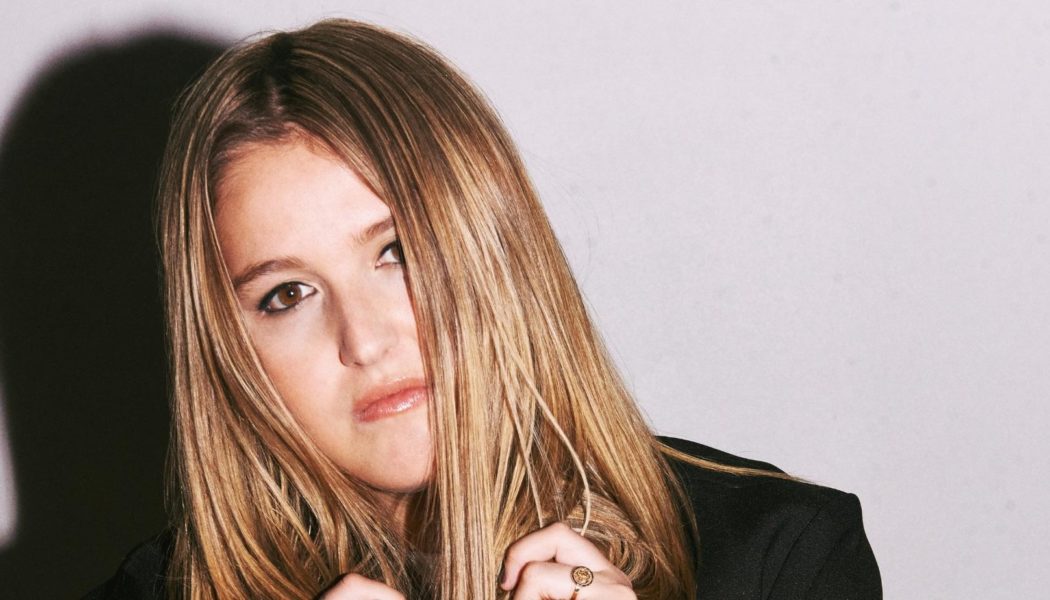
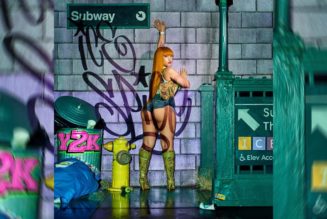
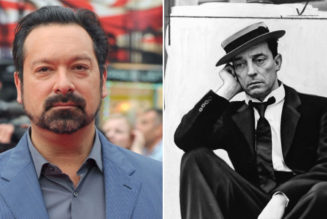
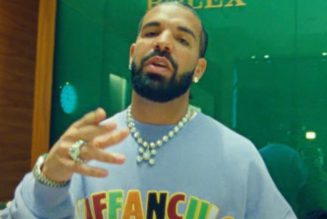
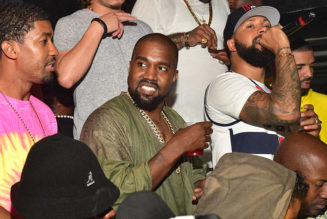
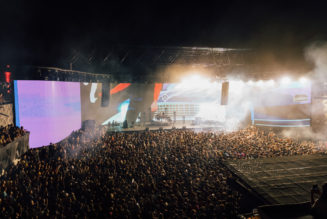
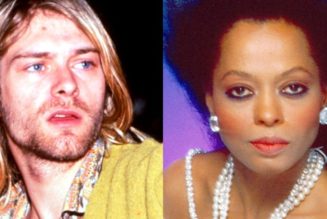

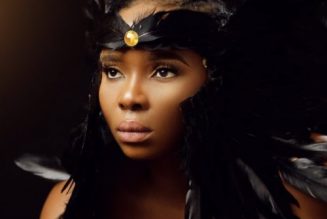

Tagged: entertainment blog, music, music blog, Pop, Pride, Profiles